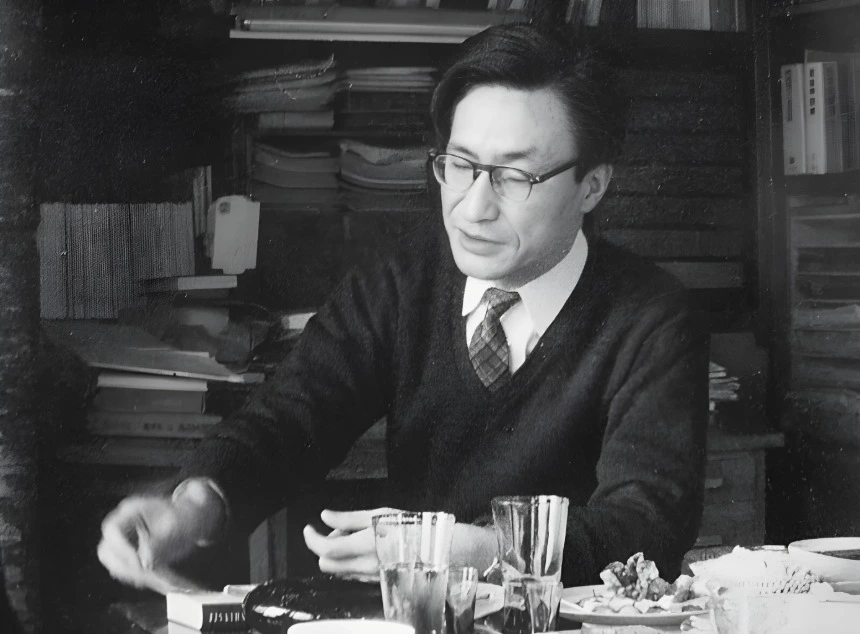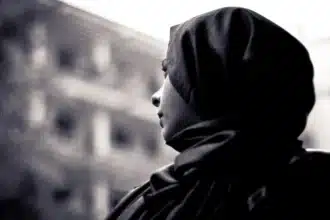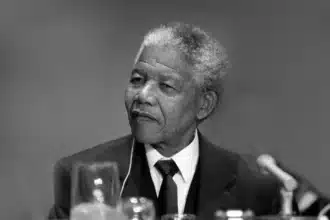Reassessing Democratic Foundations
Democracy stands as a pivotal theme in both political and public philosophy, yet it currently encounters significant scrutiny. Celebrated historically as the epitome of equitable governance, it now grapples with the emergence of authoritarian tendencies and the spread of populism, alongside a noticeable decline in the effectiveness of democratic institutions to manage both global and local crises.
- Reassessing Democratic Foundations
- From Electoral Mechanisms to Deeper Engagement
- Expanding the Democratic Model through Qualified Democracies
- Confronting Democratic Paradoxes
- Democracy as an Everlasting Dialectical Revolution
- Enhancing Democratic Quality
- Conclusion: Towards the Everlasting Multi-Dimensional Democracy
The concept of qualified democracy offers a vital framework in response, advocating for a deeper and more substantive engagement than traditional electoral systems and superficial participatory acts typically provide. This approach strives to embed democratic values more profoundly into the daily interactions and decision-making processes within the public sphere, aiming to rejuvenate the core principles of democracy in light of modern challenges.
Qualified democracy shifts the view of democracy from isolated electoral events to continuous active and informed participation.
This discussion will highlight how theoretical enhancements and practical applications of qualified democracy can potentially stabilize and invigorate democratic practices. Addressing the pressing need for a substantive evolution in democratic theory, this article prepares the ground for an extensive examination of how democracy can be qualitatively reformed to serve its citizens more effectively in our complex contemporary era.
From Electoral Mechanisms to Deeper Engagement
The prevailing notion that formal democracy, primarily characterized by elections and parliamentary processes, is sufficient to encapsulate the democratic ethos is increasingly being questioned. The challenges posed by global phenomena such as economic globalization and rising populism have revealed significant shortcomings in merely electoral democracies. These systems, while maintaining the facade of democratic engagement through periodic elections, often fail to genuinely address or mitigate the complex issues facing modern societies.
Tensions between consensus-oriented and conflict-oriented models underscore a broader debate within qualified democracies.
As we shift our focus towards a more enriched form of governance, the concept of qualified democracy presents a transformative approach. This model extends beyond the traditional electoral framework to incorporate more robust mechanisms of civic engagement and public deliberation. It emphasizes the importance of deeper, more substantive democratic practices that can more effectively respond to societal needs and enhance governmental accountability.
The evolution of qualified democracy, therefore, represents a paradigm shift from viewing democracy as a series of isolated electoral events to understanding it as a continuous process of active and informed participation. This redefined approach not only enriches the democratic landscape but also empowers citizens to play a more active role in shaping their governance structures. By fostering a culture of ongoing participation, qualified democracy aims to create a more responsive and resilient democratic system, capable of withstanding the pressures and challenges of the 21st century.
Expanding the Democratic Model through Qualified Democracies
The exploration of qualified democracy continues as we analyze theories that advocate for an expanded framework of democratic engagement. Participatory democracy, deliberative democracy, and associative democracy are all facets of this enriched model, each proposing mechanisms to extend the foundational democratic process beyond traditional limits. These theories share a common goal: to foster a more engaged and informed citizenry capable of meaningful participation in the governance process.
Participatory democracy emphasizes the active involvement of individuals in political decision-making beyond merely voting. It supports structures that allow for continuous participation in policy formulation and community decision-making.
Deliberative democracy, on the other hand, champions the idea that through rational discourse and consensus-building, democratic decisions can achieve greater legitimacy and effectiveness. This approach promotes organized discussions and debates that involve the public directly in the legislative process, ensuring that policies are not only discussed in representative assemblies but also among the general populace.
Associative democracy takes a slightly different approach by underscoring the role of voluntary associations in managing public affairs. It suggests that a robust network of civic organizations can help democratize society further by decentralizing power and enhancing the capacities of communities to manage their resources and challenges.
Together, these models of qualified democracy constitute ‘qualified democracies’, leading to a deeper and more robust approach to democratic governance that values continuous engagement, informed discourse, and community empowerment. Each model contributes uniquely to the goal of deepening democratic practices, ensuring that democracy remains vibrant and meaningful in addressing the complex issues of modern societies.
Confronting Democratic Paradoxes
Within the framework of qualified democracies, inherent tensions and paradoxes emerge, particularly between theories that prioritize consensus and those advocating for an acknowledgment of inherent conflicts within political communities. These theoretical conflicts represent a crucial aspect of the evolution toward a more robust democratic model.
The everlasting neo-dialectical approach supports a more resilient and responsive political system.
For instance, deliberative democracy is predicated on the ideal that through rational or reasonable discussion aimed at consensus-building, political decisions can gain greater legitimacy and acceptance. One representative theory assumes that an ideal speech situation can be created, where parties engage in discussions free of power imbalances and coercion, aiming for mutual understanding and agreement. This model is appealing for its commitment to reason and inclusivity in public discourse.
Contrastingly, radical democracy challenges the notion that consensus should always be the goal. It recognizes the inevitability of dissent and conflict in democratic processes and argues that these elements are vital for the vibrancy and realism of democratic life. Radical democracy values the expression of divergent viewpoints and the dynamic clash of interests, seeing them as essential to the authenticity of democratic engagement.
These tensions between consensus-oriented and conflict-oriented models underscore a broader debate within qualified democracies about how best to realize democratic ideals. Each approach offers valuable insights into how democracies can manage internal conflicts and strive for legitimacy. By addressing these paradoxes, debates among qualified democracies result in the refinement of democratic theory and practice, ensuring that they are equipped to handle the complexities of contemporary political life.
Democracy as an Everlasting Dialectical Revolution
As discourse around qualified democracies deepens, the neo-dialectical approach proposed by Masao Maruyama, a prominent post-war Japanese political theorist, offers a vital theoretical perspective. Maruyama conceptualized democracy as an ‘everlasting revolution’, a continuous dynamic process in which conflicts and consensus are not endpoints but rather integral parts of an ongoing dialogue that shapes and reshapes democratic norms and practices.
This notion of everlasting movement can be described as a neo-dialectical or everlasting dialectical process. In line with Maruyama’s terminology, this is called ‘Democracy as the Everlasting Dialectical Revolution.’
High-quality democracy aims to elevate democratic participation beyond just voting, embracing the concept of radical spiritual democracy.
This everlasting dialectical view embraces the complexity of democracy by acknowledging that it must constantly evolve to address new challenges and integrate diverse perspectives. It recognizes the inherent contradictions within democracy—between the individual and the collective, the majority and the minority—and sees these tensions as opportunities for democratic renewal rather than obstacles.
By advocating for a democracy that continuously adapts and reforms itself, the everlasting neo-dialectical approach supports a more resilient and responsive political system. It suggests that the health of a democracy is not measured merely by the stability of its institutions but by its capacity to engage in self-critique and transformation. This perspective is crucial in an era where static models of democracy fail to satisfy the demands of diverse and changing societies.
In this context, qualified democracy, enriched by the everlasting dialectical framework, offers a pathway toward a more inclusive and effective democratic practice. It encourages a perpetual reevaluation of democratic norms and institutions to ensure they remain relevant and responsive to the needs of the populace, fostering a vibrant and sustainable democratic environment.
Enhancing Democratic Quality
The pursuit of high-quality democracy is an essential goal within the context of qualified democracy. This involves not only expanding the mechanisms of participation and deliberation but also enhancing the ethical and spiritual dimensions of public engagement. Such an enriched democratic model demands a focus on the qualitative aspects of governance, where civic virtues and ethical standards are as significant as procedural norms.
Democracy must be understood and practiced as a multi-dimensional perpetual revolution.
High-quality democracy seeks to elevate the character of democratic participation beyond the mere act of voting. It incorporates the idea of ‘radical spiritual democracy,’ where the spiritual and ethical growth of individuals contributes to a more profound and reflective democratic process.
This concept, inspired by Masao Maruyama’s vision of integrating aristocratic virtues with democratic ideals, suggests that a truly robust democracy requires a populace that is not only politically active but also ethically informed and engaged. This is the vision of ideal democracy elucidated by communitarianism and republicanism in contemporary political philosophy: self-governance by sovereign people with holistic or civic virtue.
In this refined framework, democracy is seen as a dynamic interaction between the individual’s inner moral orientation and the external institutional arrangements. It challenges the community to rise above simple majority rule and to embrace a more nuanced approach that values wisdom, integrity, and public-spiritedness. Such a model encourages citizens to think critically about their roles and responsibilities, fostering a political environment where ethical considerations are paramount.
By advocating for a high-quality democracy, this approach aims to prevent the degeneration of democratic systems into populism or authoritarianism, ensuring that democracy remains a truly empowering force for all members of society. It highlights the need for continuous education and moral development as cornerstones of a vibrant and sustainable democratic system.
Conclusion: Towards the Everlasting Multi-Dimensional Democracy
In synthesizing the insights and challenges discussed, it becomes evident that democracy must be understood and practiced as a multi-dimensional perpetual revolution. This concept, deeply rooted in the everlasting dialectical approach, underscores the necessity of continuously evolving democratic processes to address the inherent tensions between thick participation, collective governance, and ethical imperatives.
These three elements respectively correspond to the following three dimensions concerning human relationships and the mind: horizontal, vertical, and elevational dimensions. Accordingly, democracy should overcome tensions between these three dimensions as part of the everlasting neo-dialectical movement beyond oppositions. Thus, the new democratic theory centers upon the idea of the ‘everlasting dialectical multi-dimensional democracy’ or the ‘neo-dialectical 3D democracy.’
The amalgamation of qualified democracies can lead to a deeper and more substantial form of democracy.
As the philosophical term ‘dialectical’ is unfamiliar to ordinary people, this can be abbreviated as ‘Everlasting Multi-Dimensional Democracy (EMDD).’ This concept represents the view of ‘Democracy as the Everlasting Multi-Dimensional Revolution,’ signifying the notion of an enduring, comprehensive approach to democracy.
The idea of qualified democracy, as expounded through various theoretical enhancements such as participatory, deliberative, and associative democracies, reflects a profound commitment to rethinking and revitalizing the democratic project. Each model contributes uniquely to addressing the gaps and failures of traditional democratic systems, suggesting that no single model can comprehensively satisfy the complex demands of contemporary societies. Hence, the amalgamation of qualified democracies can lead to a deeper and more substantial form of democracy. This endeavor enhances people’s horizontal engagement, alongside collective vertical governance.
Furthermore, qualified democracy can evolve into high-quality democracy by incorporating qualitative and ethical elements along the elevational dimension. This model can be seen as qualified high-quality democracy. This evolution of democracy involves the three-dimensional integration of vertical collective governance, horizontal civic engagement, and elevational virtue.
Viewing democracy as a ‘multi-dimensional everlasting revolution’ commits us to continual improvement and adaptation.
Moreover, the integration of these models within an everlasting dialectical framework—emphasizing the everlasting interplay between conflicting forces and harmonizing tendencies—offers a robust pathway forward. It invites us to consider democracy not as a static endpoint but as a dynamic, evolving process that must continually adapt to new challenges and integrate diverse perspectives.
Therefore, the future of democracy lies in embracing this multi-dimensional, neo-dialectical movement. It calls for a democracy that is not only procedural but also deeply ethical, not only participatory but also reflective, ensuring that the democratic process is inclusive, just, and responsive to the needs of all citizens.
By viewing democracy as the ‘everlasting multi-dimensional revolution,’ we commit to a never-ending process of improvement and adaptation, which is essential for the survival and flourishing of democratic ideals in a rapidly changing world. This evolutionary vision for everlasting multi-dimensional democracy provides a hopeful and practical framework for enduring democratic engagement and governance.
Politics and Rights Review has adapted the academic chapter titled ‘Democracy as a Perpetual Revolution: New Political Theory beyond Five Paradoxes,’ authored by Masaya Kobayashi. This article was originally published in the book Democracy – Crises and Changes Across the Globe and is licensed under CC BY 4.0. This adaptation, reviewed by the author, includes enhancements and clarifications that enrich the original academic discussion.









